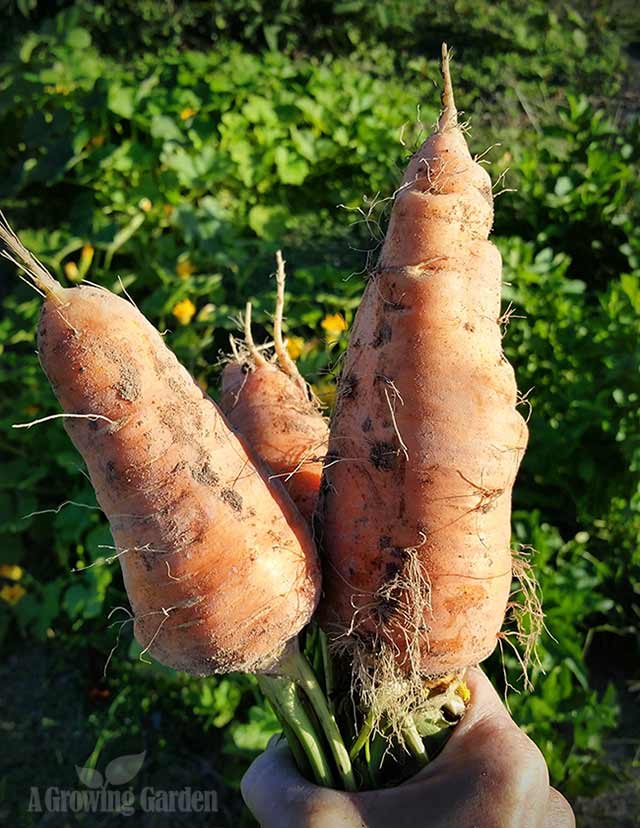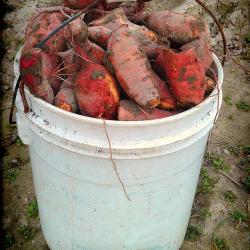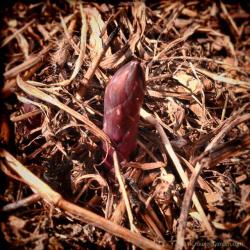
I pulled these three big, fat Danvers Carrots from my garden yesterday and we promptly ate them for dinner. Oh my ... they were tasty! There's something very special about walking out to your garden and harvesting your dinner -- especially when you've grown it yourself from teeny, tiny seeds.
Anyway, this past summer I tried to do quite a few succession plantings of carrot seed, so I still have a ton of carrots in the ground and at various stages of growth. Hopefully, I should be able to harvest fresh carrots for weeks to come ... slowly but surely.
Carrots Are (Supposed to be) Biennials
For some reason, one of the first batches of carrots I planted early in the summer bolted and went to seed. Talk about disappointment! Carrots are biennials and shouldn't produce seed until the second year (assuming you leave them in the ground for more than 1 year), so I have no idea why those crazy carrots went to seed the first year.
In theory, you should be able to leave carrots in the ground during the summer you've planted them until you are ready to eat them -- they'll just keep growing and shouldn't go to seed until the following year. Unfortunately though, like many other plants, once carrots go to seed, they aren't really fit for eating (unless you like eating things that taste and feel like wood!), so I'll just be collecting the seeds and composting those crazy, woody carrots.
All of the other batches of carrots are growing normally though ... what a relief! So, now the question is how the heck am I going to store all of my carrots?
I could just keep them in the refrigerator over winter. When stored in plastic bags in the produce bin, carrots keep surprisingly well for quite a long time in the refrigerator. However, carrots can also be over-wintered directly in the ground and that, to me, seems like a much better idea. Especially when refrigerator space is at a premium and I have a wheelbarrow load of carrots.
How to Store Carrots in the Ground for Winter
Overwintering carrots in the ground is super easy. First, you need to make sure the carrot bed is well weeded (you don't want to overwinter the weeds and encourage them to grow too!). Then simply cover the carrots with a heavy bed of mulch, straw, or leaves. The mulch will protect the carrots and keep them (and the ground around them) from completely freezing.
Our winters here in south eastern Virginia are pretty mild, so I'll probably put down about 6-8 inches of heavy mulch. Most sources say a foot of mulch works well. I've also read that you should put down some mulch, then cover that with a layer of plastic and top that with a foot of mulch. The plastic helps to keep the bottom layer of mulch dry and that will make digging the carrots easier. You also may want to weigh down the mulch so that it doesn't blow away (especially if you are using leaves or straw).
Be sure to clearly mark where the carrots are located because soon the green carrot tops will die off and you'll never be able to remember where the carrots are (trust me!). Then, when you have a hankering for a fresh carrot in the dead of winter, you can go out and dig carrots to your heart's content. And, because the carrots start to concentrate their sugars to help them get through the cold, you might even find the carrots that have been left in the ground to be sweeter than those harvested in the summer!
And that's it! Easy peasy way to have fresh carrots from your garden all winter!
Oh, and be sure to harvest ALL of your carrots before Spring though, or your carrots will go to seed next spring!












Join the Conversation!